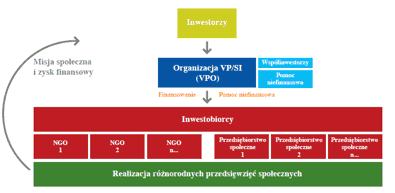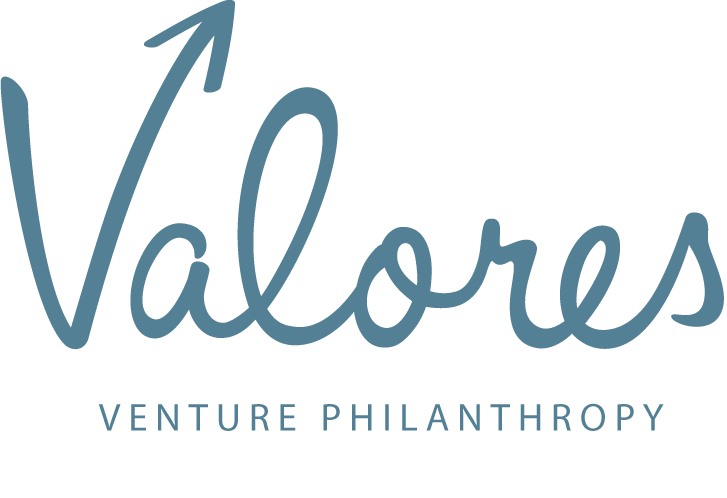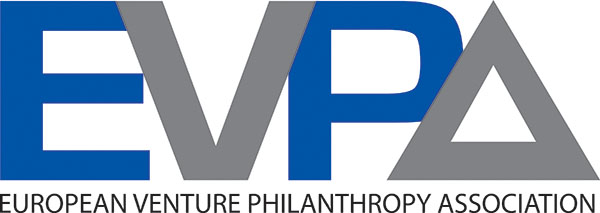Venture Philanthropy
The objective of venture philanthropy (VP) is the strengthening of the organisation in the realisation of its social mission (SPO) through financial and non-financial assistance, with the aim of increasing social impact. EVPA deliberately uses the term „social mission” as impact can be evident in the areas of community life, the environment, health and culture. In venture philanthropy all available financial instruments are used (grants, investment capital, loans etc.) taking into account particularly the ultimate objective, namely social impact.
The most important characteristics of venture philanthropy are:
- A high level of commitment – close co-operation between the organisation realising its social mission (SPO) and the venture philanthropy organisation (VPO).
- Building the potential of the organisation – aiming to support the development of the organisation in various areas, not restricted to specific projects
- Flexible selection of the method of financing – selecting from the range of financial instruments, and tailoring them to the requirements of the organisations being supported
- Non-financial help – offering support intended to improve managerial effectiveness (for example strategic planning, developing income generating activities and others)
- Role of partners – access to partners, who offer investees various, often missing competences and other resources
- Long term commitment – offering support for a small number of organisations over a period of 3–5 years and ending the co-operation („exit”) when there is financial and operational self-sufficiency (ideally both criteria being fulfilled)
- Measuring social impact – emphasis on good planning and measurable social influence, realisation of milestones, financial responsibility and transparency.
The role of a VP/SI organisation consists of mediation between financing investors and co-investors and the social organisations as well as ensuring non-financial help. The non-financial help is ensured by the same VP/SI organisation but also through third parties, both organisations and individuals. The investees realise a number of potential activities, which can be directed at various specific sectors, such as health care, education, environmental protection, culture, medical research etc. The ultimate beneficiaries could be disadvantaged social groups – for example disabled persons, women, children etc. The evaluation of the social influence of the realised projects must depend to what extent the life of the ultimate beneficiary has been improved thanks to the activities of the investee. (social organisations); taking this further, it is this improvement which also determines the level of impact created by the VP organisation. The social impact of the VP organisation depends on strengthening the investee organisation, which, thanks to the VP’s influence, serves its beneficiaries in a better way and achieves greater effectiveness and scale of its activities. The investors in the venture philanthropy social investments sector generally focus on social impact, how the investment has benefited the community and not simply on financial return.

References:
- Balbo, L., Hehenberger, L., Mortell, D., & Oostlander, P., (2016), “Establishing a Venture Philanthropy Organisation in Europe”, opracowanie Knowledge Center EVPA.
- Online tools on VP/SI
- Non-financial services in venture philanthropy
- Kodeks postępowania EVPA
- Metz Cummings, A. i Hehenberger, L., (2010), “Strategies for Foundations: When, why and how to use Venture Philanthropy”, opracowanie Knowledge Center EVPA.
- OECD netFWD, (2014), “Venture Philanthropy in Development: Dynamics, Challenges and Lessons in the Search for Greater Impact”, OECD Development Centre, Paryż.
More information on Venture philanthropy you can find on Knowledge Center EVPA’s website.
Fundacja Valores is a member of European Venture Philanthropy Association EVPA.

